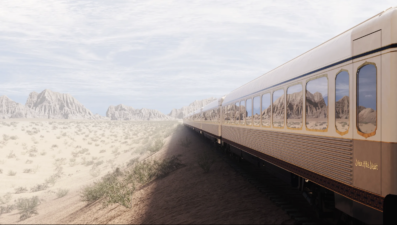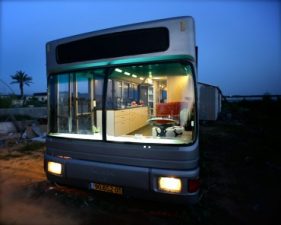
Instagramming influencers, who hop on and then off for the photo op are giving travel a bad name. Some cities in Europe don’t even want these kinds of tourists. Krista shares how you can slow it down to change the world.
Traveling and green living are an awkward combination. At first glance, traveling seems to be at odds with a green lifestyle, as it almost inevitably involves carbon emissions. Yet traveling can also contribute to a greener world as I learned working with an NGO in Indonesia: it can be an eye-opening and transformative experience, planting seeds for a new environmental consciousness. In my own case, traveling the world installed a deep appreciation of the beauty of the natural world, the destruction that humans are causing to it, and the way in which our lifestyle fuels that destruction. Traveling has taught me invaluable green lessons (like how to use a moon cup)– lessons that I wouldn’t have learned staying at home.
Breaking free from the bubble
I long considered myself to be a city girl. Being born in a big city and having grown up in an urban environment, I hardly ever got out into nature. When I started traveling and finally got out there I was overwhelmed by the beauty of our planet and positively amazed by the natural wonders I encountered. I realized I was a nature lover after all.
It was in the lush jungles of Laos that I first discovered my love for hiking. I was stunned by the peace I experienced walking through ancient forests and sleeping under the stars. Scuba diving in Indonesia’s oceans showed me a whole new magical world existing under the surface. I learned to love the sound of ocean waves and the way it eased my mind.
In Nepal, eighteen days of trekking through the Himalayas showed me the power of nature. Making my way through mighty mountain peaks, it became clear to me how incredibly strong nature is and how tiny us humans are in the grand scheme of things – I suddenly realized we are completely dependent on our planet.
Being out in nature means feeling connected to the planet. Human beings have lived close to nature for ages, but modern life in big cities has disrupted this pattern. I’m sure I’m not the only city girl who never knew she loved nature: it’s hard to cultivate a love for nature when you’re stuck in a concrete jungle. You have to break free from the bubble and experience the force of nature first.
Traveling Slow Benefits You, Local Communities and the Environment
The big disillusion while traveling
The euphoria that came with my newly found appreciation for nature was accompanied by another feeling: disillusionment. When you love someone or something, you don’t want to see it get hurt. But I was watching our planet get hurt beyond imagination. Of course, I had heard about environmental problems such as climate change and plastic pollution. But it’s one thing to know it’s there, and another to see it with your own eyes. It wasn’t until I started traveling that I truly grasped the nature and scale of the environmental crisis.
While wandering through a 130 million-year-old rainforest in the heart of Malaysia, I heard a local guide explain how climate change is killing the majestic trees. From a boat on the Mekong river, I saw the building of an industrial dam destroy vulnerable ecosystems. But worst of all was the endless piles of plastic trash: I saw plastic trash lining roads, choking rivers, covering beaches, and floating in oceans throughout Asia. Once you’ve seen this, it’s impossible to deny the environmental crisis is real – you’ll know without a doubt the crisis is happening and it’s happening right now.

About 10 years ago David de Rothschild set sail to document plastic at sea. It’s only gotten worse.
Mind you, I’m not pointing my finger at developing Asian countries for causing the plastic pollution problem. Highly developed countries are also to blame: they produce the largest amount of trash per capita and export much of it to developing countries. The difference is, in many developed countries, pollution is not that visible. Trash gets collected, so people don’t see it. This makes it easy to pretend the problem doesn’t exist. Traveling will surely cure you of this illusion.
The freeing effect of downsizing
People all over the world – but especially in developed countries – use and throw away enormous amounts of stuff at incredibly high rates. Most people aren’t even aware of it: they take their material wealth for granted and buy and ditch things without giving it a second thought. I used to be like that too – until I started traveling.
Just before I took off traveling, I got rid of my apartment and most of my stuff: my remaining possessions fit into a storage box. On the road, I carried all of my belongings on my back, which meant I wasn’t eager to carry anything unnecessary. Stuff I never used got ditched quickly and I resolved to throw something out for every new item I bought. This made me extremely conscious of what I bought: I only purchased things I really needed. Like a menstrual cup. Read all about it here.

Mooncup is a good alternative to tampons for travelers.
Living out of my backpack, with so little possessions, had a surprisingly freeing effect. Having just a few sets of clothes I never wondered what to wear, and carrying just a small toiletry bag I stopped using unnecessary personal care products. It made life a whole lot easier. I learned that having a lot of things equals having a lot of things to worry about. Whatever you have, you can lose. If you don’t have much, you don’t have much to lose either. Getting rid of most of my possessions meant I gained a lot of mental freedom.
A lesson on the value of possessions
Inevitably, traveling led me to reflect on the value of possessions. Traveling through developing countries, I saw local people with few possessions living very happy lives. These people didn’t have a fancy home or shop for new clothes every month, but they valued the things they had. What’s more, they were quite satisfied with it – they weren’t driven by a constant need to purchase more.
You could describe this life as simple, but I realized that in non-materialistic ways it was a lot richer than the modern life I knew. I encountered tight communities with strong social ties, where people spent a lot of time together and derived much of their happiness from social interactions. I saw people living close to nature, only taking from the land and sea what they needed, and actually being thankful for it. They lived a life rich in meaning and connection.
Encounters like this taught me that happiness doesn’t come from buying things. When it comes down to it, the things that really matter in life are non-materialistic. The constant strive for more stuff keeps people trapped in busy but ultimately unsatisfying lives, deprived of meaningful connections.
The powerful influence of media
If downsizing is such a freeing experience and having a lot of things doesn’t make us happy anyway, then why are people buying so much stuff in the first place? The media play a major role in this – and traveling can be a good way to break their spell.

Hanging out with some new friends.
Traveling drastically lowered my media-intake: I stopped watching television, dramatically decreased the amount of time I spent on social media and started using the Internet more selectively. I had some of my most impactful travel experiences on remote islands without an Internet signal. In places like that something magical happened: I was able to slow down and focus on the simple things in life – the ones that really matter. Far away from the noise of modern life, I could finally connect to my environment, other people, and ultimately myself.
We are bombarded with advertisements on a daily basis: through television, radio, social media, and the Internet we are constantly – often unconsciously – influenced by adds. These adds have one specific purpose: to convince us that we don’t have enough stuff and need to buy more in order to be happy. Taking a media break allowed me to take a step back and created space for a different perspective. It was like resetting my system.
Towards a new green mindset
The number one lesson I learned while traveling is that we live on an incredibly beautiful planet, and everything and everybody living on it is interconnected and interdependent. But modern life tends to disconnect us from nature and each other. It makes us believe we should pursue happiness through buying stuff, the production and disposal of which is leading to the destruction of our natural world.

Traveling made me see the beauty of our planet and the true scale of the environmental crisis. It led me to experience a life free of possessions, question the value of material things, and get rid of my addiction to stuff. It helped me connect the dots and see things in a new light. Traveling didn’t just mean breaking free from the concrete jungle and getting out into nature. It also meant breaking free from a mindset and lifestyle based on consumption. Instead, it taught me to pursue a meaningful life based on connection to nature and other people.
If we want to reverse the process of environmental destruction, we have to find ways to create a new awareness and reconnect to our planet. Traveling is one way to do that.



